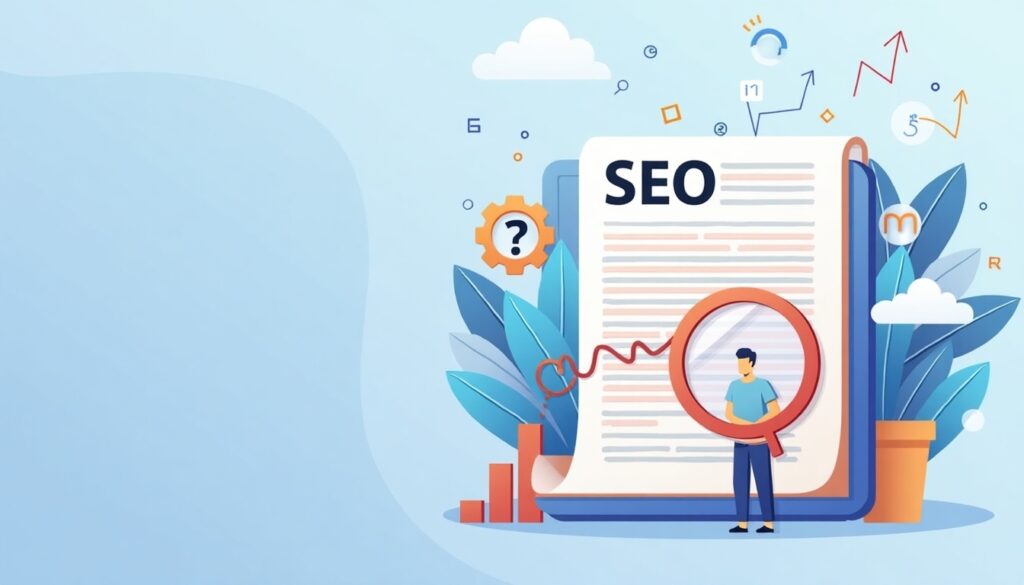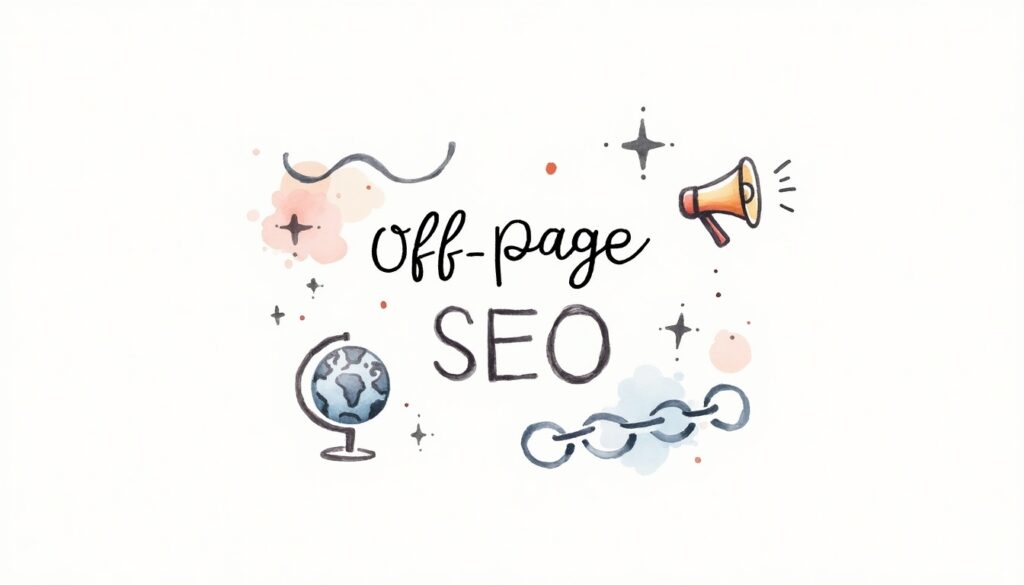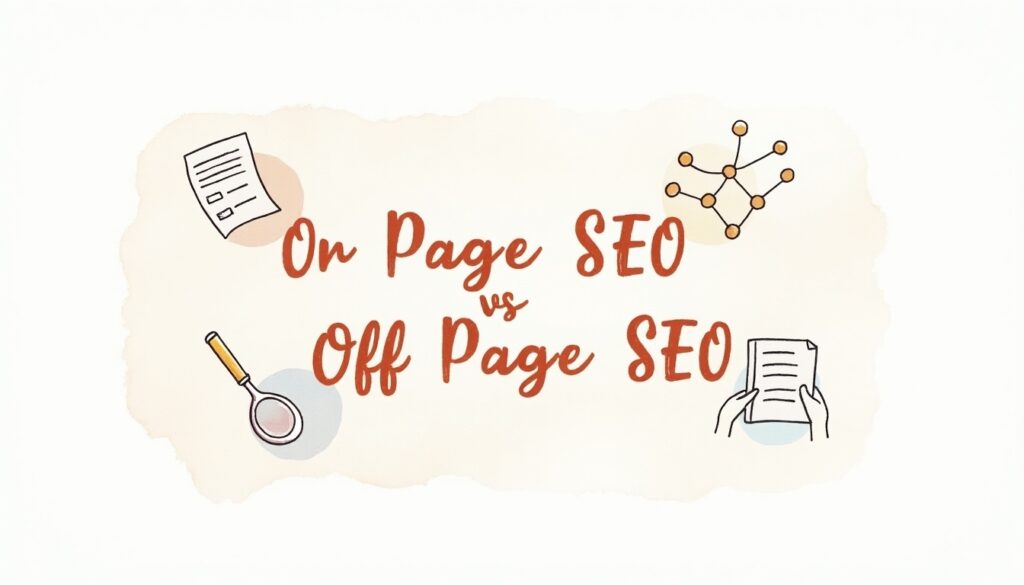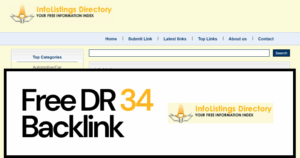On-Page SEO vs Off-Page SEO what is it & what are their differces. Before diving into it lets know what Search Engine Optimization (SEO) is and how it plays a crucial role in enhancing a website’s presence on search engine results pages (SERPs).
In simple terms SEO is about aligning a website with the algorithms and guidelines of search engines while delivering valuable, user-focused content. This helps businesses reach their target audience more effectively, driving both visibility and credibility in a highly competitive digital landscape.
On-Page SEO involves optimizing elements directly on your website, like content quality, keyword placement, and user experience factors such as site speed and mobile-friendliness. Conversely, Off-Page SEO encompasses external activities aimed at improving site authority and reputation through backlinks, social media engagement, and influencer collaborations. Balancing both strategies is key; focusing on solid On-Page practices sets the stage for successful Off-Page efforts that boost credibility in the digital realm.
What is On-Page SEO?

On-Page SEO refers to the strategies and techniques used directly on a website to improve its position in search rankings. This includes optimizing various elements within the website, such as content, HTML source code, and overall site structure. One of the most critical aspects of On-Page SEO is content quality. High-quality, engaging content that satisfies user intent is crucial because search engines prioritize content that is relevant and valuable to users.
Another key element is keyword optimization. This involves strategically placing primary and secondary keywords in the content, headings, and meta tags to help search engines understand what the page is about. For example, if you run a bakery, using keywords like “fresh bread” or “artisan pastries” in your content can attract the right audience.
Meta tags also play a significant role in On-Page SEO. Utilizing keyword-rich titles and descriptions can improve click-through rates by making search results more appealing. Additionally, having a clean and descriptive URL structure that includes relevant keywords enhances both user experience and search engine indexing.
Internal linking is another important factor. By linking to other relevant pages on your site, you can improve navigation and distribute page authority throughout the site. This helps in keeping users engaged longer and reduces the bounce rate.
User experience (UX) is a significant aspect of On-Page SEO. Factors such as page load speed, mobile-friendliness, and a well-structured layout contribute to user satisfaction. If a website takes too long to load or isn’t mobile-friendly, users are likely to leave, which negatively impacts your SEO.
Lastly, technical SEO ensures that search engines can crawl and index your site properly. This includes using canonical tags, schema markup, and fixing any crawl errors. By addressing these technical issues, you make it easier for search engines to understand and rank your site.
Key Elements of On-Page SEO
On-Page SEO includes several important elements that can directly influence a website’s search rankings. First and foremost is content quality. High-quality, informative content that answers users’ questions or solves their problems is essential. For instance, a blog post that thoroughly explains a topic tends to perform better than a shallow one.
Keyword optimization is another crucial aspect. This involves strategically placing relevant keywords in your content, headings, and meta tags. For example, if you run a bakery, using keywords like ‘best chocolate cake recipe’ in your blog can help attract the right audience.
Meta tags, including title tags and meta descriptions, should be crafted carefully. A compelling title that includes your target keyword can entice users to click on your link over others in search results.
URL structure also matters; clean and descriptive URLs that incorporate keywords can improve both user experience and search engine indexing. For instance, a URL like ‘www.example.com/best-chocolate-cake-recipe‘ is more intuitive than ‘www.example.com/page1‘.
Internal linking is important as well. By linking to other relevant pages on your site, you can guide visitors through your content while also distributing page authority, which enhances SEO.
User experience (UX) plays a significant role in On-Page SEO. Factors like fast page load speeds and mobile-friendliness can help retain visitors. A well-structured layout makes it easier for users to navigate your site, leading to longer visit durations.
Finally, technical SEO ensures that search engines can crawl and index your site effectively. This might involve fixing broken links or using schema markup to provide additional context about your content. Together, these elements create a solid foundation for effective On-Page SEO.
- Title Tags
- Meta Descriptions
- Header Tags (H1, H2, etc.)
- URL Structure
- Internal Linking
- Image Optimization
- Keyword Placement
- Mobile Friendliness
What is Off-Page SEO?

Off-Page SEO involves strategies that happen outside of your website, aimed at improving its authority and visibility in search engine results. The primary focus is on building relationships and enhancing your site’s reputation across the internet. One of the key components is acquiring backlinks, which are links from other websites to yours. High-quality backlinks from authoritative sites serve as endorsements, signaling to search engines that your content is credible and valuable.
Another important aspect is social media marketing. Sharing your content on social media platforms can drive traffic to your site and increase visibility. Engaging with your audience on these platforms helps in building brand awareness and can lead to more shares and backlinks.
Reputation management is also crucial in Off-Page SEO. Monitoring your brand’s online presence and addressing any negative feedback can help build trust with both users and search engines. Influencer marketing plays a role here as well; collaborating with influencers can expand your reach and lend credibility to your content.
Brand mentions, even if they do not include a link, can also enhance your site’s credibility. They indicate to search engines that your brand is recognized and talked about, which can positively impact your authority. Guest blogging is another effective Off-Page strategy, allowing you to write for other blogs and in return gain valuable backlinks while introducing your brand to new audiences.
Key Elements of Off-Page SEO
Off-Page SEO focuses on building your website’s reputation and authority away from your site. The most crucial element is backlinks, which are links from other websites to yours. High-quality backlinks from reputable sites act as endorsements, improving your site’s authority and search ranking. For example, if a well-known blog links to your article, it signals to search engines that your content is valuable.
Social media marketing also plays a significant role. Sharing your content on platforms like Twitter, Facebook, and Instagram can increase visibility and drive traffic. Engaging with your audience and promoting discussions around your content can further enhance your online presence.
Reputation management is another key aspect. Monitoring reviews and feedback about your brand helps build trust. A positive online reputation can significantly influence user decisions and search rankings.
Influencer marketing involves collaborating with individuals who have a substantial following in your niche. When they share your content, it can quickly reach a broader audience, enhancing your credibility.
Brand mentions, even when not linked, contribute to your site’s authority. When your brand is mentioned on reputable sites, it increases awareness and can positively impact search rankings.
Finally, guest blogging allows you to write and post articles on other blogs. This not only provides backlinks but also introduces your brand to new audiences, increasing your reach.
Comparison of On-Page vs Off-Page SEO
On-Page SEO and Off-Page SEO serve different purposes but are equally important for a successful SEO strategy. On-Page SEO focuses on elements within your own website, such as content, HTML tags, and site structure. For example, if you have a blog post about healthy recipes, ensuring that your content is well-written, includes relevant keywords, and has a user-friendly layout falls under On-Page SEO. On the other hand, Off-Page SEO involves activities that occur outside your website to enhance its authority and visibility. This includes building backlinks, engaging in social media, and managing your online reputation. For instance, if a popular food blogger links to your healthy recipes post from their site, that’s an Off-Page SEO strategy that can significantly improve your site’s authority and search rankings. While On-Page SEO helps search engines understand your content, Off-Page SEO builds the credibility needed for your website to rank higher.
| Aspect | On-Page SEO | Off-Page SEO |
|---|---|---|
| Definition | Optimization efforts on the website itself. | Activities outside the website to enhance visibility. |
| Focus | Content, HTML, and overall webpage structure. | Building external relationships, reputation, and authority. |
| Key Elements | Content quality, keyword optimization, meta tags. | Backlinks, social media marketing, reputation management. |
| User Experience | Emphasis on improving user experience. | Focus on building external credibility and authority. |
| Page Load Speed | Important for user satisfaction. | Not a direct factor but can influence user behavior. |
| Technical SEO | Addressing crawlability, indexing, etc. | Primarily concerned with external factors. |
| Backlinks | Internal linking within the website. | Acquiring external high-quality backlinks. |
| Social Media Presence | Can be integrated but not a primary focus. | Actively engaging on social media for promotion. |
| Authority Building | Establishing authority through content. | Building authority through external endorsements. |
The Importance of Balancing Both

Balancing On-Page and Off-Page SEO is essential for a comprehensive digital marketing strategy. On-Page SEO focuses on optimizing your website’s content and structure, ensuring that visitors have a positive experience. For instance, well-written content and fast loading times keep users engaged, reducing bounce rates. On the other hand, Off-Page SEO works to build your site’s authority through external factors such as backlinks and social media presence. For example, if a reputable site links to your blog, it signals to search engines that your content is credible. A strong On-Page foundation makes your site more appealing for Off-Page strategies, such as acquiring backlinks. Together, they create a synergy where well-optimized content attracts links, and authoritative links boost your site’s visibility. Hence, neglecting either aspect can hinder overall SEO performance.
When to Use On-Page & Off-Page SEO
It’s generally advisable to focus on On-Page SEO before delving into Off-Page SEO. A strong foundation of On-Page SEO allows search engines to understand your content better and ensures users have a positive experience. For instance, if you have optimized your website’s content with relevant keywords and ensured a good user experience, it sets the stage for Off-Page efforts like link building. Once the on-site elements are solid, you can start directing efforts toward Off-Page SEO, such as acquiring backlinks and engaging on social media. In some cases, like during a website redesign or launch, you may need to prioritize On-Page SEO. However, if your site has solid On-Page practices, you can begin Off-Page activities simultaneously to maximize your online presence.
Frequently Asked Questions
1. What is on-page SEO and how does it work?
On-page SEO refers to all the things you can do on your website to help it rank better in search engines. This includes things like using the right keywords, creating high-quality content, and optimizing your titles and meta descriptions.
2. What is off-page SEO and why is it important?
Off-page SEO involves all the actions taken outside your own website to improve its ranking. This often includes building backlinks from other websites, social media marketing, and getting mentions on other online platforms.
3. Can I do on-page SEO and off-page SEO at the same time?
Yes, you can and should do both on-page and off-page SEO at the same time. They work together to improve your website’s ranking more effectively.
4. How long does it take to see results from on-page and off-page SEO?
The time it takes to see results can vary, but you may start noticing some improvements in a few weeks with on-page SEO, while off-page SEO can take several months for full effects.
5. Which is more important, on-page SEO or off-page SEO?
Both on-page and off-page SEO are important for a successful SEO strategy. On-page SEO helps your content to be seen and understood, while off-page SEO helps build credibility and authority.
TL;DR On-Page SEO focuses on optimizing elements within your website, such as content quality, keyword usage, and user experience. Off-Page SEO involves activities outside your site, like building backlinks and managing social media presence to enhance authority. Both strategies are essential for improving search rankings and visibility, with a balance needed for effective SEO. Start with On-Page SEO to create a solid foundation before pursuing Off-Page techniques.




